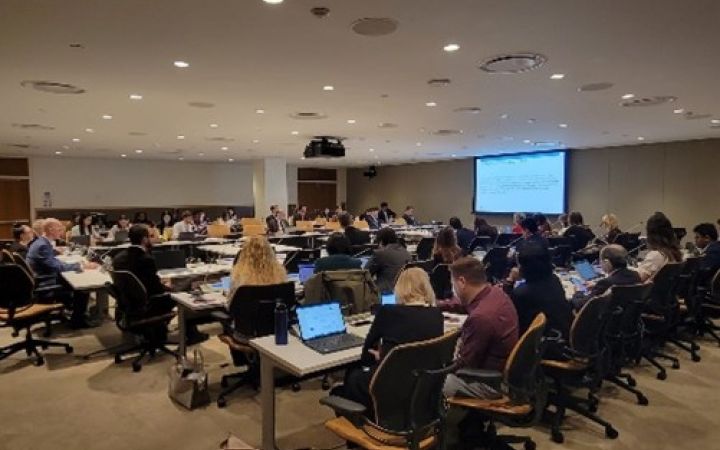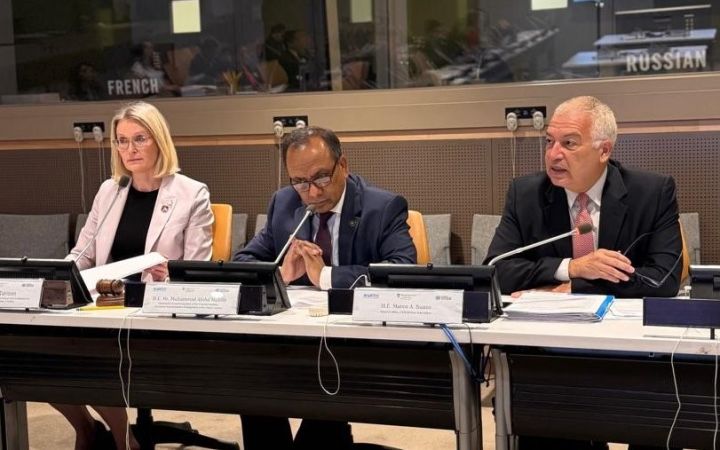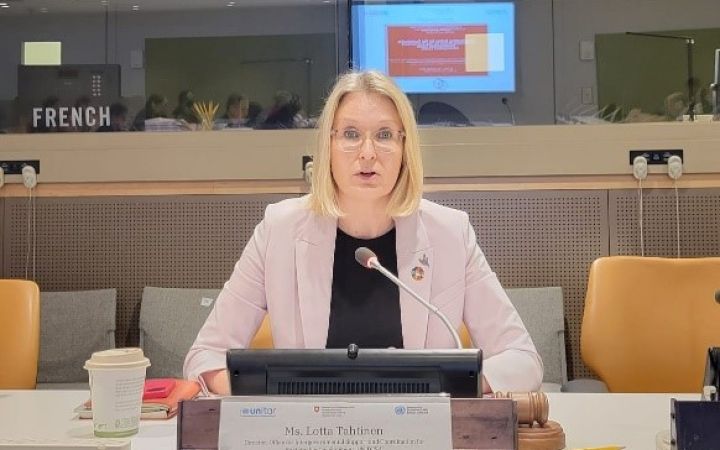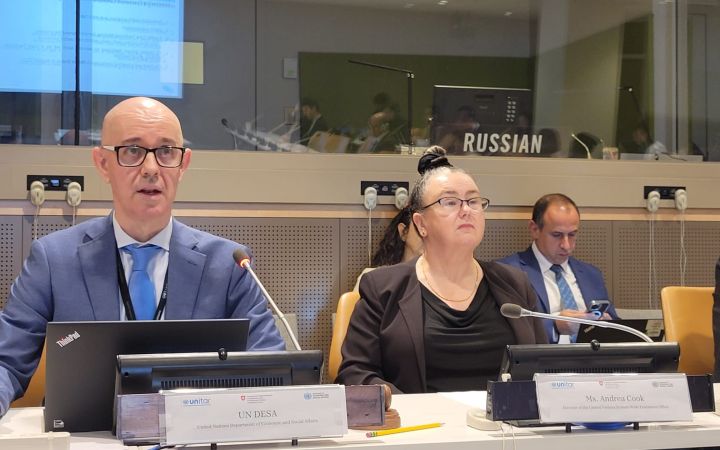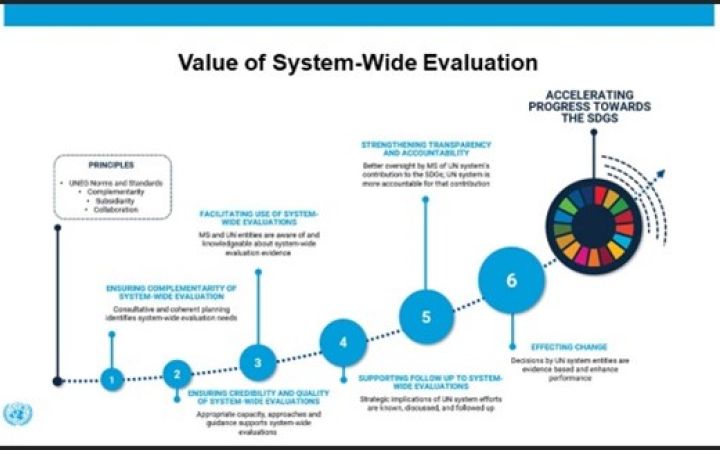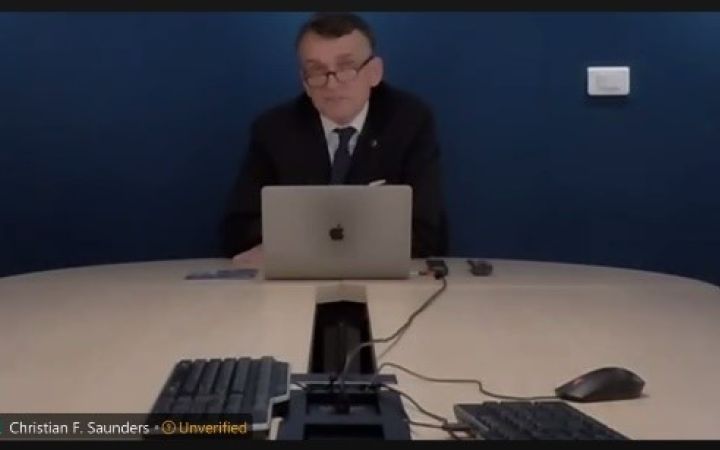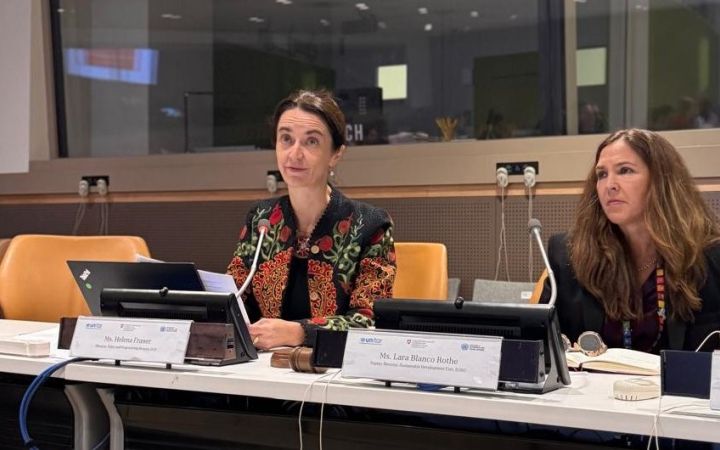03 October 2024, New York, United States – This module, titled “Looking Forward to the 2024 QCPR,” was conducted on Wednesday, 02 October 2024, at UNHQ and via video conference. With over 130 participants, the session delved into critical aspects of the funding for UN operational activities for development and financing the achievement of the Sustainable Development Goals (SDGs). In this final module of the UNITAR QCPR training series, presenters provided a recap of previous modules and key takeaways to delegates, with actionable insights for their 2024 QCPR preparations. Delegates were briefed on the QCPR Monitoring Framework as well as status updates on QCPR implementation and evaluation evidence by the System-Wide Evaluation Office. Finally, delegates received an update on the 2024 QCPR process and the next steps to guide their preparations.
QCPR Training Module 4 – Looking forward to the 2024 QPCR
2 October 2024, UNHQ CR-11
- QCPR Training Module 4 - Programme
- QCPR Training Module 4 - Remarks by Lotta Tahtinen
- QCPR Training Module 4 - 2020 QCPR Status Reporting | Economic and Social Council
- QCPR Training Module 4 - DESA Presentation on the Monitoring Framework
- QCPR Training Module 4 - Andrea Cook - Systemwide Evaluation Office
- QCPR Training Module 4 - USG Saunders OSCSEA PPT
To access all materials from this session, as well as relevant documents from the previous modules in the training series, please visit the 2024 QCPR Training Module Materials.
In her recap of the training series, which occurred over 4 modules from 21 May – 02 October, Ms Lotta Tahtinen, Director of the Office for Intergovernmental Support and Coordination for Sustainable Development at UN DESA, highlighted the importance of the upcoming 2024 QCPR resolution as a strategic opportunity to accelerate progress toward the 2030 Agenda and the SDGs. She noted the key achievements of the UN development system, including strengthened coordination through the Resident Coordinator System and efficiency gains, while addressing the ongoing challenges in financing and integrating SDGs into national policies. Tahtinen emphasized the need for ambitious policies, tailored solutions, and systemic transitions to overcome gaps and drive sustainable development, particularly in vulnerable countries.
Mr. Matthew Hammill, Economic Affairs Officer, Office for Intergovernmental Support and Coordination for Sustainable Development at UN DESA, presented an overview of the QCPR Monitoring Framework. He emphasized the importance of the framework in supporting the monitoring and reporting of the UN’s development system’s performance, particularly in relation to the 2030 Agenda. The framework, developed through a collaborative effort among multiple UN entities, is structured around five broad expectations and covers 24 topic areas, helping to assess progress with 257 indicators tailored to various UN mandates.
In her presentation, Ms. Andrea Cook, Director of the System-Wide Evaluation Office, focused on the value of system-wide evaluations within the UN, particularly how they complement individual UN entity evaluations. She highlighted the importance of collective learning and collaboration in improving the quality and availability of evaluation evidence to support progress towards the Sustainable Development Goals. Cook also reviewed key initiatives, such as the Spotlight Initiative and the system-wide evaluation of the UN’s socio-economic response to COVID-19, demonstrating the office's commitment to strengthening oversight, accountability, and transparency across the UN system.
Under Secretary-General Christian Saunders, the Special Coordinator on Improving the UN Response to Sexual Exploitation and Abuse (SEA), focused on the continued efforts to strengthen accountability and prevention measures within the UN system. He emphasized the importance of improving the overall response to SEA through coordinated actions, enhancing transparency, and ensuring victim-centred approaches. Saunders also discussed ongoing initiatives to bolster reporting mechanisms and promote a zero-tolerance culture towards SEA across the UN’s global operations.
Ms Aparna Mehrotra, Director of the United Nations System Coordination Division at UN Women, and Ms Corinna Hawkes, Director of Agrifood Systems and the Food Safety Division at the Food and Agriculture Organization, both provided status updates on their respective efforts to drive institutional change by translating commitments into actions on the ground.
Next, Ms Lara Blanco Rothe, Deputy Director of the Sustainable Development Unit at the Executive Office of the Secretary-General (EOSG), and Ms Helena Fraser, Director of the Policy and Programming Branch at the Development Coordination Office (DCO), provided their perspective on the repositioned United Nations Development System, exploring potentials for a way forward.
To conclude the session, Mr. Cyril Prissette of the Permanent Mission of Switzerland to the United Nations and the facilitator for the informal consultations on the 2024 QCPR, discussed the next steps in the 2024 QCPR intergovernmental process. Joshua Kalebo, representing the Group of 77 and China, commended UNITAR, UN DESA, and the Permanent Mission of Switzerland for organizing the QCPR training series and provided an update on the Group's work on the zero draft resolution, emphasizing their commitment to collaborating with Member States to strengthen the UN system and accelerate progress toward achieving the 2030 Agenda and Sustainable Development Goals.
The session closed with remarks from Mr. Suazo, Head of UNITAR New York Office.
To access all materials from this session, as well as relevant documents from the previous modules in the training series, please visit the 2024 QCPR Training Module Materials.


